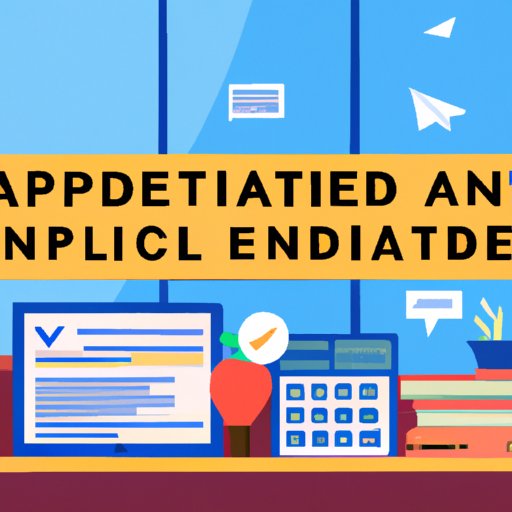Introduction
If you’ve lost financial aid eligibility due to poor academic performance or any other reason, it’s important to understand that there may be ways to regain it. It can take time and effort, but it is possible to get back on track with your financial aid. In this article, we’ll explore the process of regaining financial aid eligibility and provide tips on how to make the most of available resources.
Overview of the Problem
Losing financial aid eligibility can be a difficult situation to face, especially if you had been relying on aid to support your education. The most common reasons for losing eligibility include failing to maintain satisfactory academic progress, not meeting specific requirements outlined in an award letter, or not completing the required paperwork. Whatever the cause, it’s important to remain positive and take advantage of any options available to you.

Benefits of Regaining Financial Aid Eligibility
The primary benefit of regaining financial aid eligibility is that you can continue your education without worrying about the additional cost. With financial aid, you may be able to afford tuition, fees, books, and other expenses associated with attending college. Additionally, financial aid can help reduce the amount of debt you must take on. If you are able to regain eligibility, you’ll be able to stay in school and achieve your academic goals.
Appeal to Your School’s Financial Aid Office
If you have lost financial aid eligibility, the first step is to appeal to your school’s financial aid office. They may be able to offer assistance in the form of grants, loans, or other types of aid. When submitting an appeal, it’s important to explain why you lost eligibility and what you plan to do to ensure it doesn’t happen again. You should also provide evidence of how you plan to improve your academic performance.
In addition to submitting an appeal, it’s important to communicate with financial aid staff. Make sure you understand all of the requirements for regaining eligibility and ask questions if you need clarification. Keeping open lines of communication will help ensure that you are doing everything you can to get back on track.
Take Steps to Improve Academic Performance
Once you have submitted an appeal, it’s time to take steps to improve your academic performance. Start by developing a study plan that outlines how you will approach your coursework. Make sure to factor in enough time for studying, completing assignments, and taking exams. Utilize available academic resources such as tutoring services, online study tools, and library materials.

Research and Apply for Scholarships
Another way to regain financial aid eligibility is to research and apply for scholarships. There are many different types of scholarships available, so it’s important to identify the ones that best fit your needs. Consider both need-based and merit-based scholarships, as well as those offered by local organizations, businesses, and foundations. Once you’ve identified potential opportunities, begin preparing and submitting applications.

Consider Taking a Gap Year or Semester
Taking a gap year or semester can be a great way to regain financial aid eligibility. During this time, you can focus on improving your academic performance and exploring other avenues for funding your education. Taking a break from school can also give you the opportunity to travel, gain work experience, and volunteer. Before taking a gap year or semester, make sure to research the pros and cons and create a plan for making the most of your time off.
Create an Action Plan for Financial Success
Creating an action plan for financial success is essential for regaining financial aid eligibility. Start by establishing financial goals such as saving for college, reducing credit card debt, and creating an emergency fund. Then, develop a budget that outlines your income and expenses. This will help you stay on track and reach your goals.
Seek Assistance From a Financial Aid Expert
Finally, consider seeking assistance from a financial aid expert. Identify a professional who has experience helping students regain financial aid eligibility. A financial aid expert can provide advice and guidance on the best steps to take and resources available to help. They can also help you create a plan of action and stick to it.
Conclusion
Losing financial aid eligibility can be discouraging, but it doesn’t have to mean the end of your educational journey. By appealing to your school’s financial aid office, taking steps to improve academic performance, researching and applying for scholarships, and considering a gap year or semester, you can regain financial aid eligibility and get back on track. Additionally, seeking assistance from a financial aid expert can provide valuable advice and guidance throughout the process.
(Note: Is this article not meeting your expectations? Do you have knowledge or insights to share? Unlock new opportunities and expand your reach by joining our authors team. Click Registration to join us and share your expertise with our readers.)
